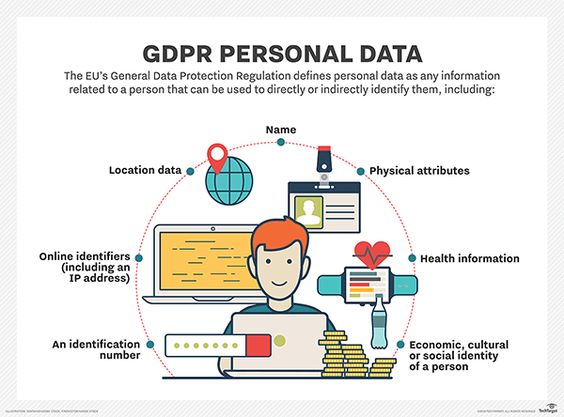
In today’s data-driven world, customer relationship management (CRM) systems are integral to business operations, enabling organizations to manage interactions with current and potential customers effectively. However, with the advent of the General Data Protection Regulation (GDPR) in the European Union, businesses must navigate stringent data privacy regulations to ensure compliance. This article explores the relationship between CRM systems and GDPR compliance, providing insights on how businesses can navigate these regulations.
Understanding GDPR
The GDPR, which came into effect on May 25, 2018, is a comprehensive data protection law aimed at safeguarding the personal data of individuals within the EU. It applies to all organizations that process the personal data of EU residents, regardless of where the organization is based. Key provisions of the GDPR include:
- Data Subject Rights: Individuals have the right to access, rectify, erase, restrict, and object to the processing of their personal data.
- Consent: Organizations must obtain explicit consent from individuals before collecting and processing their personal data.
- Data Breach Notification: Organizations must notify authorities and affected individuals of data breaches within 72 hours.
- Data Protection by Design and Default: Organizations must implement appropriate technical and organizational measures to ensure data protection principles are integrated into their processing activities.
- Accountability: Organizations must demonstrate compliance with GDPR principles through documentation and regular assessments.
CRM Systems and GDPR Compliance
CRM systems store and process vast amounts of personal data, making GDPR compliance a critical concern. Here’s how businesses can ensure their CRM systems comply with GDPR regulations:
1. Data Mapping and Inventory
Start by conducting a comprehensive data mapping exercise to identify all personal data collected and stored in your CRM system. This includes information on customers, leads, and contacts. Create an inventory of the data, detailing where it is stored, how it is processed, and who has access to it.
2. Obtaining Consent
Ensure that your CRM system is configured to obtain explicit consent from individuals before collecting their personal data. This involves updating your data collection forms to include clear and concise consent statements. Keep records of the consent given by individuals, including the date, time, and method of consent.
3. Data Subject Rights
Implement processes to facilitate the exercise of data subject rights within your CRM system. This includes:
- Access: Allow individuals to access their personal data stored in the CRM.
- Rectification: Provide mechanisms for individuals to correct inaccurate or incomplete data.
- Erasure: Enable individuals to request the deletion of their personal data.
- Restriction and Objection: Allow individuals to restrict or object to the processing of their data.
Ensure that your CRM system can handle these requests promptly and efficiently.
4. Data Minimization and Retention
Adopt data minimization principles by only collecting personal data that is necessary for your specific business purposes. Regularly review and delete data that is no longer needed. Establish data retention policies to ensure personal data is not kept longer than necessary.
5. Data Security
Implement robust security measures to protect personal data stored in your CRM system. This includes:
- Encryption: Use encryption to protect data both in transit and at rest.
- Access Controls: Restrict access to personal data based on roles and responsibilities.
- Regular Audits: Conduct regular security audits and vulnerability assessments to identify and address potential risks.
Ensure that your CRM vendor complies with security standards and has measures in place to protect your data.
6. Data Breach Notification
Develop a data breach response plan that outlines the steps to be taken in the event of a data breach. This includes identifying the breach, containing it, assessing the impact, and notifying authorities and affected individuals within 72 hours. Ensure that your CRM system can support the detection and reporting of data breaches.
7. Training and Awareness
Provide training to employees on GDPR principles and the importance of data protection. Ensure that those who use the CRM system understand their responsibilities and are aware of the procedures for handling personal data. Regularly update training materials to reflect changes in regulations and best practices.
8. Documentation and Accountability
Maintain detailed records of your data processing activities, including data collection methods, consent records, data protection measures, and data subject requests. Conduct regular assessments and audits to ensure ongoing compliance. Be prepared to demonstrate compliance to regulatory authorities if required.
Choosing a GDPR-Compliant CRM System
When selecting a CRM system, it’s crucial to choose a vendor that prioritizes data protection and compliance. Consider the following factors:
- GDPR Features: Look for CRM systems that offer features specifically designed to support GDPR compliance, such as consent management, data subject rights management, and data encryption.
- Vendor Reputation: Choose a reputable vendor with a track record of compliance and data security.
- Support and Training: Ensure that the vendor provides adequate support and training to help your organization achieve and maintain compliance.
- Data Processing Agreements: Review and sign data processing agreements with your CRM vendor to ensure they comply with GDPR requirements and safeguard your data.
Conclusion
Navigating GDPR compliance is essential for businesses that rely on CRM systems to manage customer data. By understanding GDPR requirements and implementing appropriate measures within your CRM system, you can protect personal data, build customer trust, and avoid significant fines and penalties. As data privacy regulations continue to evolve, staying informed and proactive in your compliance efforts will ensure that your organization remains compliant and competitive in the digital age.